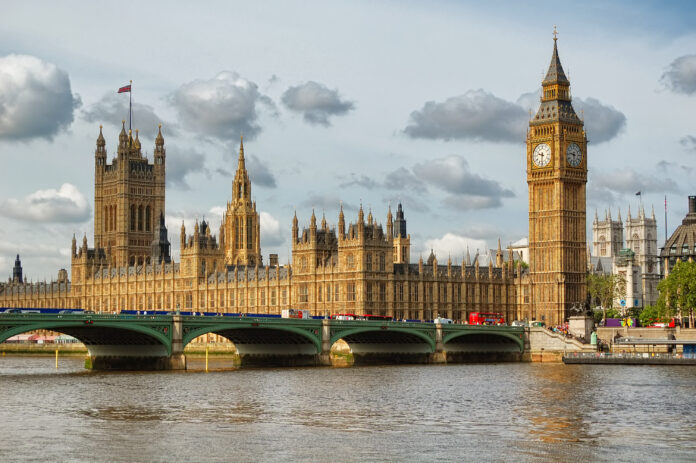Fourteen Muslim MPs did not vote against a parliamentary bill which will see public bodies fined if they support boycott campaigns against Israel.
Tory MP Saqib Bhatti backed The Economic Activity of Public Bodies (Overseas Matters) Bill on Monday night, while Labour MPs Naz Shah, Tulip Siddiq, Afzal Khan, Rushanara Ali, Rosena Allin-Khan, Yasmin Qureshi, Shabana Mahmood, Imran Hussain, Zarah Sultana, Tahir Ali, Rupa Huq and Mohammad Yasin either abstained from voting under instructions from Labour leader Keir Starmer or had other reasons for not recording a vote.
Tory MP Rehman Chishti also did not record a vote.
The only Muslim MPs to oppose the bill were Labour’s Apasana Begum and SNP MP Anum Qaisar.
Apsana Begum said: “The bill states that public’s bodies, including local councils and universities making procurement or investment decisions, must not allow that decision to be influenced by political or moral disapproval of foreign state conduct.
“It is opposed by trade unions and a wide range of civil society organisations and is yet another attack on our democratic freedoms. Had legislation such as this been in effect in the 1980s it would have made it unlawful to refuse to source goods from Apartheid South Africa.
“I support the rights of public bodies to make investment decisions informed by ethical considerations. This can include, for example, decisions not to invest in climate-destroying fossil fuel companies or in the arms industry, or to take account of breaches of international law or human rights abuses such as torture, genocide, unlawful occupations, forced evictions, unlawful military invasions, war crimes, and other crimes against humanity.
Subscribe to our newsletter and stay updated on the latest news and updates from around the Muslim world!
“I believe that we all have a responsibility to stand in solidarity with the oppressed and speak out against injustice wherever it may be without exception.”
During the parliamentary debate Imran Hussain MP criticised the bill but still did not record a vote against it, presumably in the hope that the Tories would amend it.
He said: “Let me be absolutely clear that the Bill before this House, which should be rejected, is not just bad and unworkable but fundamentally flawed and dangerous. Hon. Members across the House have rightly stated that it does not just prevent public bodies such as local councils involving themselves in foreign policy — as the Government innocently declare — but meddles in the autonomy of local government pension schemes to make the best investment decisions, and swings a wrecking ball through the UK’s obligation to respect international law and countless United Nations resolutions…
“As pointed out by hon. Members across the House, the Bill directly contradicts decades of established UK foreign policy on illegal Israeli settlements built on occupied land. It is astounding that it has to be repeated in this Chamber time and again that settlements in the Occupied Palestinian Territories are illegal under international law. Why does the Bill not recognise that international position?
“Instead of introducing legislation to Parliament that provides cover to the Netanyahu Government’s illegal annexation of Palestinian territory, Ministers must decide whether they agree with the established position of the rest of the international community that the settlements and the Israeli Government’s repeated disregard for international law are illegal. As hon. Members have stated, the Bill as it currently stands is in direct contravention of not just international law but United Nations resolutions.”

On Monday the government won the vote by 268 top 70 with 308 votes not recorded.
If it eventually becomes law, the bill will ban public bodies such as local councils from imposing economic sanctions on countries that are not sanctioned by the Westminster government, singling out Israel as particularly worthy of protection.
Michael Gove, the communities secretary, said during the Commons debate: “[The bill] affirms the important principle that UK foreign policy is a matter for the UK government. It ensures local authorities focus their efforts on serving residents, not directing their resources inefficiently. And critically it protects minorities, especially Jewish communities, against campaigns that harm community cohesion and fuel antisemitism.”
Specifically on BDS, he said: “We are talking in concrete terms about a campaign that exists, and has been in operation now for nearly 20 years, based on a premise that seeks to delegitimise the state of Israel. The campaign also leads directly, as I shall point out, to antisemitic incidents and a loss of community cohesion.”
Gove has long been a critic of the boycott, divestment and sanctions movement, which campaigns for organisations to cut economic ties with Israel in protest over its treatment of Palestinians. Ministers have criticised two councils – Leicester and Lancaster, both of which have Labour as the largest party – for boycotting Israeli goods.
Supporting the bill last month, The President of the Board of Deputies of British Jews President Marie van der Zyl said: “We are pleased to support the Government’s endeavours in the Economic Activity of Public Bodies (Overseas Matters) Bill which will directly hinder the unnecessary and inappropriate targeting of Israel by local authorities and other public institutions.
“We appreciate how the Government is working to prevent these organisations from setting their own foreign policy, which all too often creates a deeply divisive local situation as well as being deeply unsettling to local Jewish communities.”





















